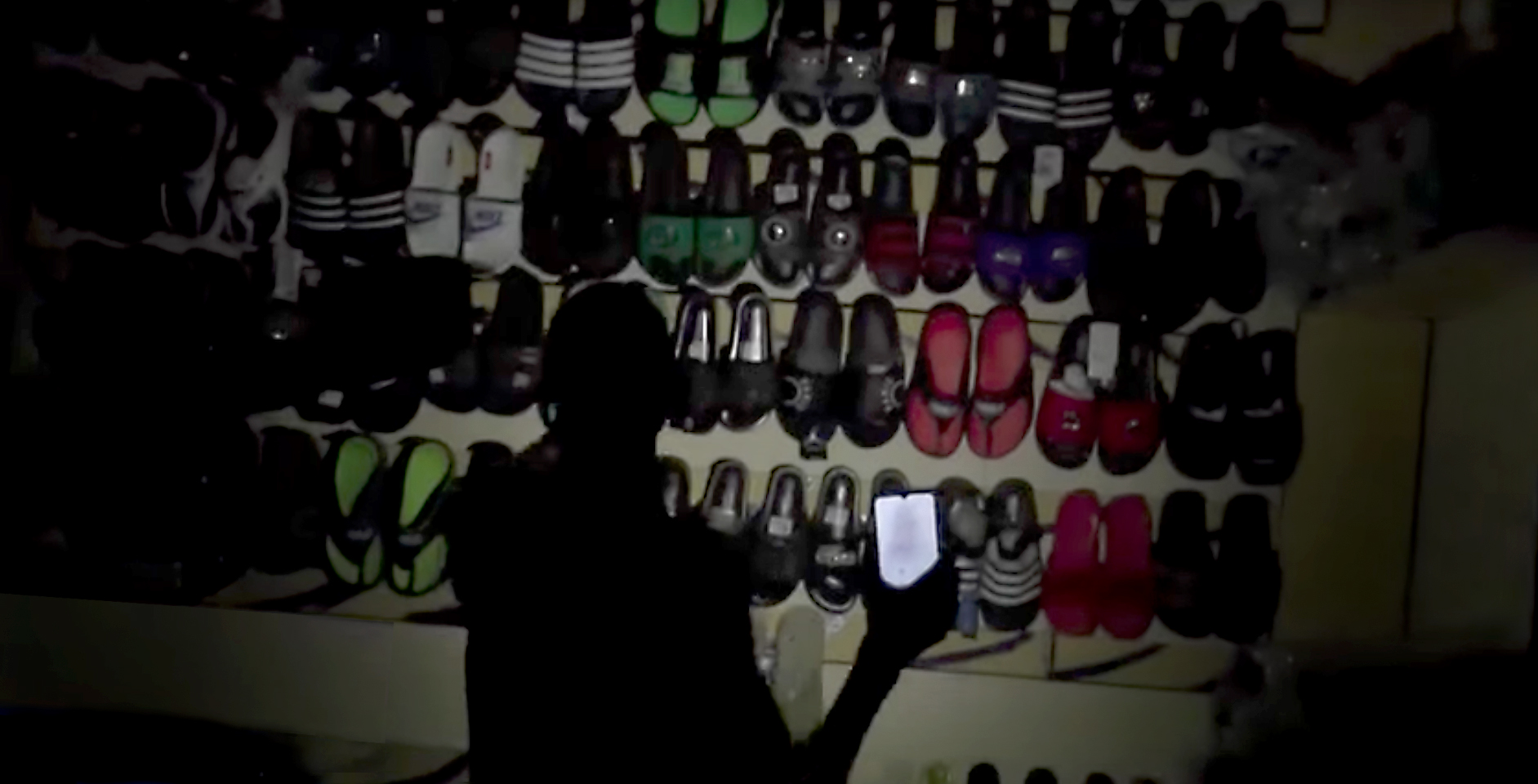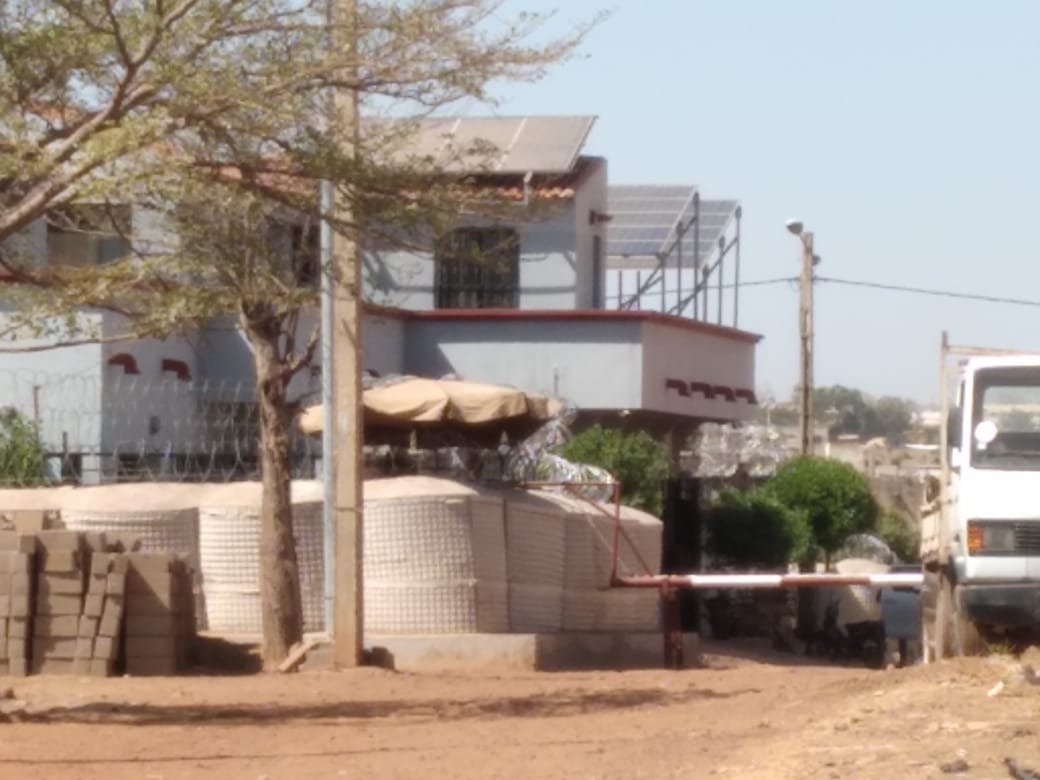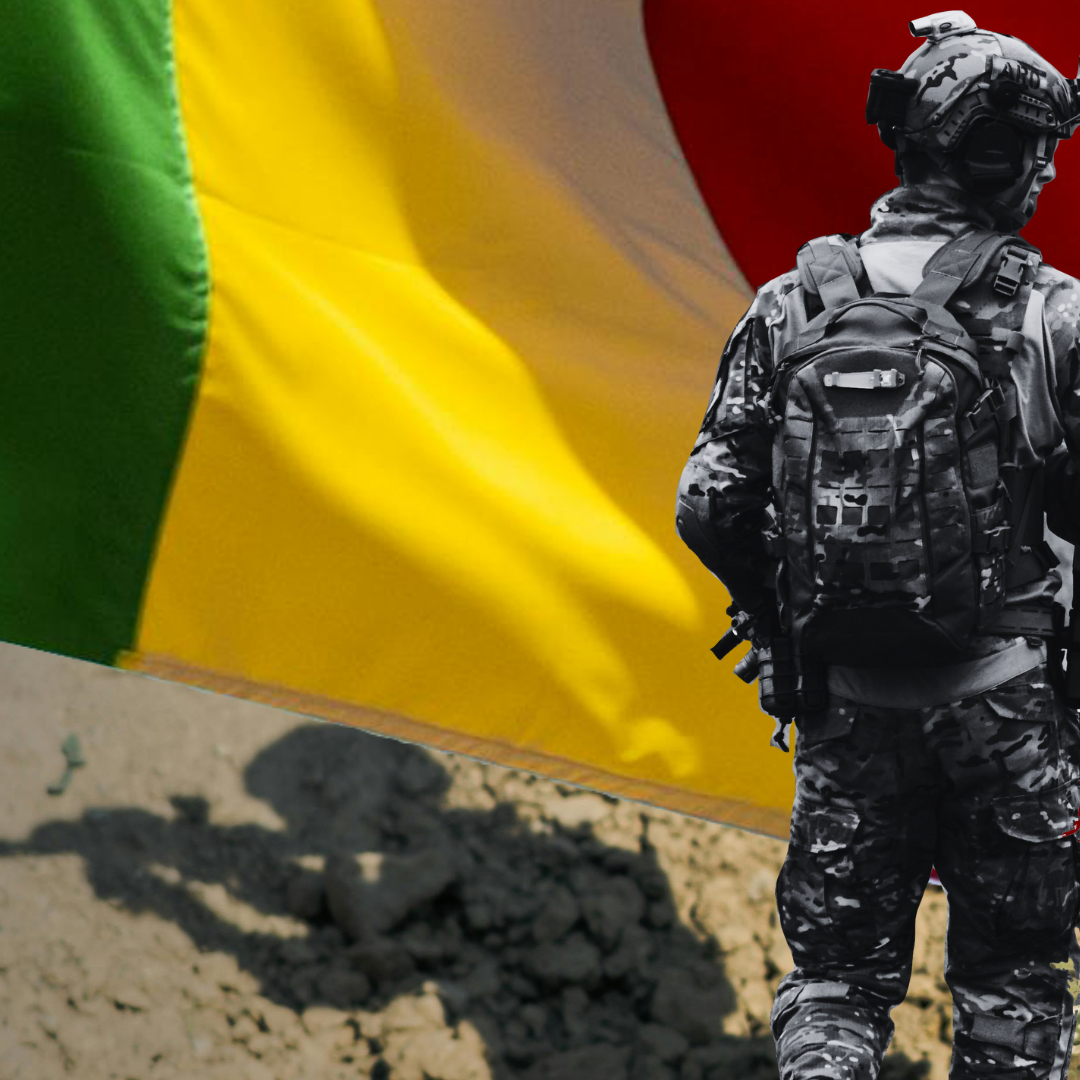Read the French version here.
The disillusionment for all of us
Sominé Dolo Hospital in Mopti, central Mali, Friday May 17, 2024. It is 7PM. Everything is black here. The lights are out due to the now almost continuous power cuts. The loudspeakers of the large mosque in downtown Sevaré let out the shrill cry of the muezzin calling for Maghreb evening prayers, but heads are not bent in prayer and devotion in this hospital establishment, the main health facility in the northern centre of the country. Energie du Mali (EDM) has not provided power for 24 hours. This has been a recurring event for several months. While truly dark, the comings and goings of patients’ relatives, using the torches on their phones, go on. There are many patients here now.
The morgue is full, too. One of its guards confides that, in the three months between March and May 2024, the cooling chamber received the unusually high number of 200 deceased bodies. “The heat and very long power outages precipitated the deaths of numerous civilian and military patients. And the black streak continues.” Many of the patients admitted to this hospital are war wounded, both civilians and soldiers. “Around ten civilian victims (of war violence) that I was assisting died at the end of April 2024 due to lack of adequate care, including electricity and oxygen,” says nurse Mamadou Traoré, encountered in the dark corridors of the hospital.
There was terrorism and darkness before, but never have the hospitals been this full and never has the darkness been so all-encompassing.
Never have the hospitals been this full
600km south, in the capital Bamako, the main hospitals, including Centre Hospitalier Universitaire Gabriel Touré and Point G, are also in a state of disarray. The electricity generator at Gabriel Touré, supposed to take over during power outages, stopped working from March to April, precipitating the death of several patients. “There is no fuel,” we learn from management. Here, like at other health institutions, the government's financial services are struggling to supply fuel to run the generator. The state budget is running on empty.
Subsistence
“We are no longer afraid of jihadists or terrorism; there is no need to go into the interior (of the country, where armed jihadis and Wagner fight),” confides Moussa Dienta, known as Malcolm, a member of one of the groups of men who hang out at the capital’s congregation points to discuss the news of the day. “Bamako is now also insecure.” Complaining about the criminal attacks that take place during the dark nights, he explains that the deteriorating economic situation and the power outages have also affected him directly: the metalworks company that employed him as an engineer is one of many enterprises that closed its doors recently. Others on this street corner nod; they have suffered the same fate. “You know, this cooperation with the Russians is disappointing,” concludes Malcolm. “It turned into disillusionment for all of us. We are worried about our daily subsistence now.”
“We are worried about our daily subsistence now”

The military themselves are happy, though, and seemingly intent on staying in power for a while still. According to the main resolution from the “Inter-Malian Dialogue” held in early May 2024 in Bamako, the junta wants to extend the duration of the military transition. Elections aren’t anywhere on the cards. What they are doing in terms of governance meanwhile is not clear; their main activity seems to be to attack anything and everything that remains of the former coloniser with harsh and hateful speeches, which invariably feature the words “white” and “coloniser”. Russians are also white, but they are not described as such and manage to evade the spiteful rhetoric.
Traces of the French
Nevertheless, neither the expulsion of French Barkhane forces from Malian territory on June 31, 2022, preceded by the arrival of Russia, nor new Russian contracts for a gold refinery and several cooperation agreements with Russia on oil, gas, uranium, and lithium production have erased the traces of the French. The economy still rests on multinationals like Total, Orange, Satom, and Razel, to name just a few that continue to hold a significant market share. They are so anchored in Mali that investments by the new Russian partner will have difficulty gaining ground. France’s control over the economy also remains strong due to the historic agreement that placed the monetary reserves of the CFA franc with the Bank of France.
There is now an official ban on French development funding
The only tangible economical break with France so far has been the official ban instituted by the junta on French funding intended for local development. As a result of the ban, the Agence Française de Développement has suspended its activities and withdrawn its staff from the field. The direct financial and logistical support provided by the French Ministry of Foreign Affairs and International Cooperation through the French Embassy to hundreds of schools has also been withdrawn.
Some Malian academics believe that France is to blame for the decay of its centuries-old relations with the countries of the Sahel. “Its excessive influence on the nations it colonised, and its abuse of power, exploiting us for themselves, drove our country into this situation,” is the view of Georges Diawara, researcher and historian at the University of Bamako. “It has opened great rifts, and then the anti-French sentiment led to revolt.”
Maladministration and corruption have been hallmarks of Mali’s post-colonial, French-friendly government. In the patronage system of governance, granting contracts and favours to friends was always more important than school meals or health care. But this new situation is certainly no better.
Tangible benefits
While the benefits of the new partnership with Russia are barely visible to Mali’s population, there are very tangible ones to be seen when driving down the road leading to the garrison town of Kati. Here, new houses for the colonels have recently sprung up like mushrooms, and more construction is still ongoing. “This is scandalous,” says a neighbour who lives close by. “(Junta member) Colonel Sadio Camara is feeding several horses in his yard. He even has two stables. While we are struggling to survive.”

The colonel has several horses in his yard
Documents from the BMS bank in the possession of ZAM show how current accounts belonging to individuals now in power have morphed to savings accounts. According to bank employees we spoke to, this is to receive more money or dividends linked to public contracts in their departments or structures.
According to a report from the Regulatory Authority for Public Procurement and Public Service Delegations, the number of state contracts awarded according to public tender rules decreased by 32% between 2021 and 2022. During the same period, public contracts awarded by private agreement in Mali represented 20% of the total value of public procurement, far above the West African Economic and Monetary Union’s standard of 5 %.
A significant portion of these contracts, it is widely suspected, are arms purchases. According to a 2023 SIPRI report, arms imports from Russia have increased substantially after the coup. Tignougou Sanogo, former professor of international public law at Bamako Law University, says that purchases of arms and military equipment are more easily conducted now, since restrictive administrative procedures, previously imposed by Europe and the USA, have been done away with.
And while the population of Mali struggles to survive, members of the National Transition Council (CNT), serving as the National Assembly since the coup d’état, are proposing a new law that would grant them the same benefits and compensation as the previous parliament, even though CNT members have not been elected. The transition charter adopted in 2020, after the coup, had stipulated lower benefits to the CNT members. However, as per Constitutional Court ruling N°2024-04/CC of June 24, 2024, these benefits have now been increased to proper parliamentary ones, including housing, cars, fuel, and several bonuses.
A case against this proposed law in the Supreme Court, brought in April 2024 by the Malian Association for the Fight against Corruption and Financial Delinquency (AMLCDF), and a request to the Auditor General (BVG) to open an investigation into the benefits and compensations granted to the CNT members, have both remained dormant (see here and here). In the run up to the lodging of this case, however, AMLCDF president Moussa Touré has been threatened, kidnapped, detained, interrogated at military offices, and beaten several times.
Russian bodyguards protect the presidency
In 2024, the junta’s presidency increased its operating budget from FCFA 13 billion (US$21 million) to FCFA 16 billion (US$26 million). Another benefit for those in the presidency is the protection now allocated to it by a Russian Expeditionary Corps of bodyguards. “This proximity ensures sustained understanding and influence within Malian decision-making,” notes a report from rusi.org.
No money in the bank
The ailing economy and the pressures on the state budget are said by experts to be at the root of the darkness in the country. Electricity provider EDM’s debt level alone has increased to more than €300 million in the past three years, causing scarcity of diesel for its thermal power plants. “EDM has to import, this year alone, 500 million litres of diesel amounting to FCFA 309 billion (US$490 million),” worries former Malian Minister of Energy, Hamed Sow. Before the coups, electricity in Mali was partly produced through hydroelectric plants but, according to those in the know, these have been neglected by the new government, which appears to prefer large diesel contract deals.
The state is defaulting on many of its bills to smaller suppliers. Forty-something Aldiouma Sylla, a large trader and supplier of office materials in Bamako, has his worries in this regard written on his wrinkled, anxious face. He has been struggling for more than a year to get his bills worth FCFA 48 million (US$78,000) paid, he says.
State suppliers are still waiting to be paid from 2021
“State suppliers are still waiting to be paid their invoices from 2021, let alone those for 2024,” says septuagenarian business consultant Maridié Niaré, with an equally worried look. The former employee of the Treasury’s Paymaster-General’s Office left the bureaucracy for private entrepreneurship before the 2020 coup, but his businesses are now ailing, he says, for lack of money available in the banks. “For several months now, I haven't been able to withdraw the FCFA 6 million periodically distributed among my company's shareholders,” says Niaré.
“The economic situation is in tatters and requires time and vision to be rebuilt,” says Modibo economist Mao Macalou bluntly. “When a country only functions to pay the salaries of its civil servants (who make up no more than 5% of the population for Mali), it’s quite worrying,” concurs Mamadou Diamoutene, scientist and academic at the Center for Reflection on Development.
Under constant threat
Despite the ascendance of the military to power, security in Mali has deteriorated so badly that parents in the zones north of the capital now fear sending their children to school. “There is no point in sending our children to the slaughterhouse. The few schools in the area are not attended. The state has no security base in the villages located between Douentza and Timbuktu. Populations are under constant threat. Even teachers are not safe,” confides an advisor from the Goudam Educational Animation Center, who says he regrets the departure of several teachers because of insecurity.
“There is no point in sending our children to a slaughterhouse”
Just a few kilometres from Mopti, villagers and travellers along the national road all seem stressed. In Soufroulaye, just outside Mopti, refugee camps stretch as far as the eye can see. The United Nations High Commission for Refugees (UNHCR) and many other charitable organisations are busy distributing food and clothing to the displaced. Attempts to interview refugees or charity workers were in vain; no one here was willing to answer any questions.
Estimates by Armed Conflict Location & Event Data Project (ACLED) suggest that Wagner (now called Africa Corps, but all Malians still know it as Wagner) is present in 90% of all military operations in central Mali.
A list of massacres
The Blood Gold Report of December 2023 summarises the following atrocities carried out by Wagner, now called the Africa Corps, in Mali:
- One incident saw around 21 men in the village of Diaba-Allaye arrested by Wagner for protesting against the Malian government at the site of a political prison operated by Russian-linked units.
- Villagers in Fakala, Sio, Pignari, Doucombo, Fatoma, and Sofara have reported thousands of cows, sheep, and goats stolen by Wagner forces in collaboration with Malian soldiers and local militias.
- Shortly before staging a mass grave site at Gossi, Kremlin-backed mercenaries massacred the population of Hombori, killing fifty civilians.
- In January 2022, Wagner assisted in the killing of five civilians in Feto and Wouro Gnaga near Segou, including an older woman who was burnt to death inside her home when soldiers began looting and burning houses.
- From February to March 2022, the Malian army and Kremlin-affiliated troops raided the Segou region, leaving more than 50 civilians missing. Eyewitnesses and residents discovered a further 35 charred bodies that had been bound before their execution.
- In March 2022, Malian troops and associated Russian soldiers executed 500 men, mainly from the Fulani ethnic group, in the town of Moura over the course of five days, suspecting them of links to Islamist groups.
- Wagner’s brutal campaign continued into 2023, with Russian mercenaries assaulting a village in Seguela during a search operation, killing eight and arresting 17.
- They also killed at least 20 more civilians and physically assaulted others in Sossobe, while looting properties and arresting dozens in Ouenkoro
- Wagner forces are estimated to have committed 298 confirmed acts of violence against the local population.
- An alarming 69% of all Wagner missions in Mali have involved the targeting of civilians, compared to only 27% against armed enemies.
One is either a terrorist or a terrorist accomplice
Asking around further in the rural areas, I am told that Bandiagara and Sofara, two localities south and south east of Mopti, now host Russian military units, while Sofara’s northern flank is under siege from jihadist militants. I am also told that the Russians wage their war on terror against the villages as a whole under the motto “One is either a terrorist or a terrorist accomplice.”
A couple of hundred kilometres to the north, I meet survivors of precisely this type of Russian attack. “Here, out of ten people killed, eight were innocent people known by the entire village,” testifies an inhabitant of Bambara Maoundé, a village recently attacked twice by the army and its Russian ally. The last one, six months ago, left several civilians injured and killed. A woman who identifies herself as the president of a local women’s association makes it clear that the attacks have not endeared the population to the state and its Russian ally. At least “the jihadists give us money,” she says angrily. “They have protected us against several armed attacks. The army and its Russian ally, on the other hand, bombed us several times here. We will never forgive this.”
In other localities, other victims and relatives of victims, equally bitter, talk of a state in the process of decimating its own sons. “We're not safe. We are being attacked, yet we are neither terrorists nor Islamists,” says Alpha Maïga, from Hombori, the village between Mopti and Gao, where a few months ago the Malian army killed fifty civilians in one day. Maïga says arrests and harassment around the market area, where traders and villagers congregate, continue to be a daily occurrence.
Some junta members from the north of the country have resigned after protesting against the crimes committed against civilians in the north. One of the latest is Sidi Mohamed Ould Alhousseini, a member of the CMA, who resigned on November 1, 2023. He made this known in a letter of resignation, a copy of which is in the possession of ZAM.
Fear of reprisals
Meanwhile, civil society activists in Mali’s towns have fallen silent out of fear of reprisals. Human rights activists have all, virtually without exception, fallen silent. Amnesty International's offices in Bamako have been closed since 2023.
Requests for comment were sent to the spokespersons of the military government, but no responses were received in time for this publication.
Update: On 2 and 3 July, a Russian Rosatom delegation visited Mali to sign MoUs on the development on nuclear infrastructure.
*The author’s name has been changed for safety reasons
Read all the investigative articles in this series:
Hôtel Kremlin | Niger (English)
Hôtel Kremlin | Niger (French)
Hôtel Kremlin | Burkina Faso (English)
Hôtel Kremlin | Burkina Faso (French)
Hôtel Kremlin | Niger, Mali, Burkina Faso (English)
Call to Action
ZAM believes that knowledge should be shared globally. Only by bringing multiple perspectives on a story is it possible to make accurate and informed decisions.
And that’s why we don’t have a paywall in place on our site. But we can’t do this without your valuable financial support. Donate to ZAM today and keep our platform free for all. Donate here.


